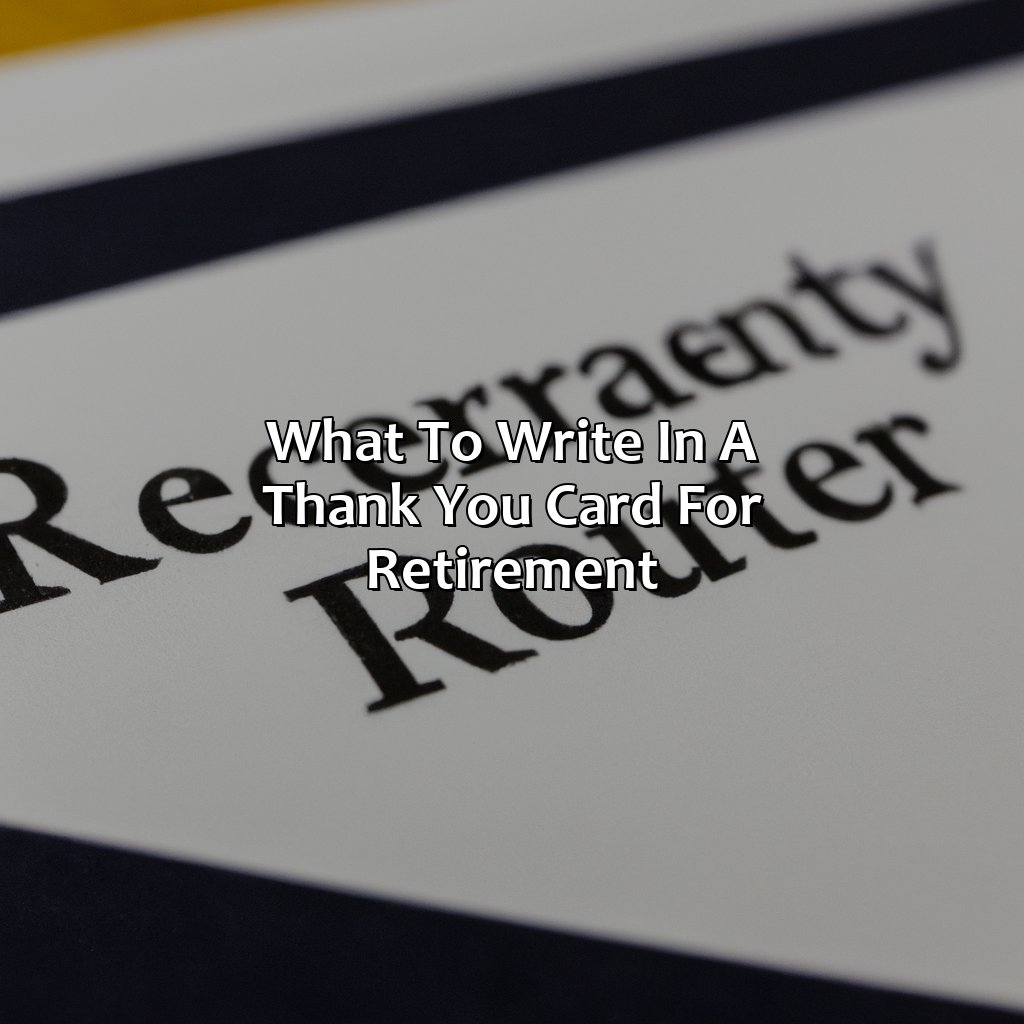What To Write In A Thank You Card For Retirement?
Key Takeaway:
- Retirement thank you cards are an important gesture: Sending a thank you card to a retiring colleague or loved one is a great way to show your appreciation for their contribution and wish them well in their future endeavors.
- Choose the right tone and language: Make sure to choose a tone and language that reflects your relationship with the person and the sentiment you want to convey. Keep it heartfelt, sincere, and genuine.
- Mention specific memories or moments: Including specific memories or moments in the card can make it more personal and meaningful. It shows that you have taken the time to reflect on the person’s contributions and value to your life or organization.
- Express gratitude and appreciation: Express your gratitude and appreciation for the person’s dedication, hard work, and support. Let them know how much you will miss them and how they have made a difference in your life or organization.
- Wish them well for their future endeavors: Wish the person well for their future endeavors and let them know that they will always be a part of your life or organization. Encourage them to pursue their interests and enjoy their retirement.
- Sign off appropriately: Use an appropriate closing that reflects your relationship with the person, such as “With warm regards” or “Sincerely.”
- Include a thoughtful and relevant gift: Including a thoughtful and relevant gift with the card can make it even more special and memorable. Consider their interests and hobbies and choose something that they will appreciate and enjoy.
Do you know how to express your gratitude for a retiring colleague? Writing a heartfelt thank you card can help show your appreciation. You can easily express your gratitude with the right combination of thoughtful words. Learn how to compose the perfect thank you card for retirement.
Importance of sending a retirement thank you card
As an important milestone in a person’s life, retirement deserves to be recognized and celebrated. Sending a thank you card to the retiree is not only a thoughtful gesture but also a way to show respect and gratitude. It acknowledges their dedication and contribution to the workplace, and the fact that they will be missed. A retirement thank you card can also leave a lasting impression and serve as a fond farewell.
When it comes to writing a retirement thank you card, the message should be heartfelt and genuine. You can express your appreciation and good wishes, share a fond memory or a funny anecdote, or simply offer congratulations. You can also mention the retiree’s accomplishments, skills, or personal qualities that made them stand out. The tone can be formal or informal, depending on your relationship with the retiree.
It is also important to send the retirement thank you card in a timely manner, preferably before or shortly after the retirement party or farewell gathering. This shows that you took the time and effort to acknowledge the retiree’s departure and wish them well in their new chapter.
In addition to the retiree, you may also want to send a thank you card to their spouse or partner, who has been a supporting and often unsung hero throughout their career. This can be a nice way to show that their contribution is also recognized and appreciated.
Lastly, a retirement thank you card should be personal and specific to the retiree, rather than generic or clichéd. It should reflect your genuine feelings and gratitude, and not just be a formality. By taking the time to write a heartfelt message, you can make the retiree feel valued and respected, and leave a positive impression.
For instance, I remember receiving a retirement thank you card from my colleagues that made me feel appreciated and touched. Their message expressed not only their gratitude for my work but also their admiration for my integrity and kindness. It made me realize that my contribution was not only recognized but also valued on a personal level.
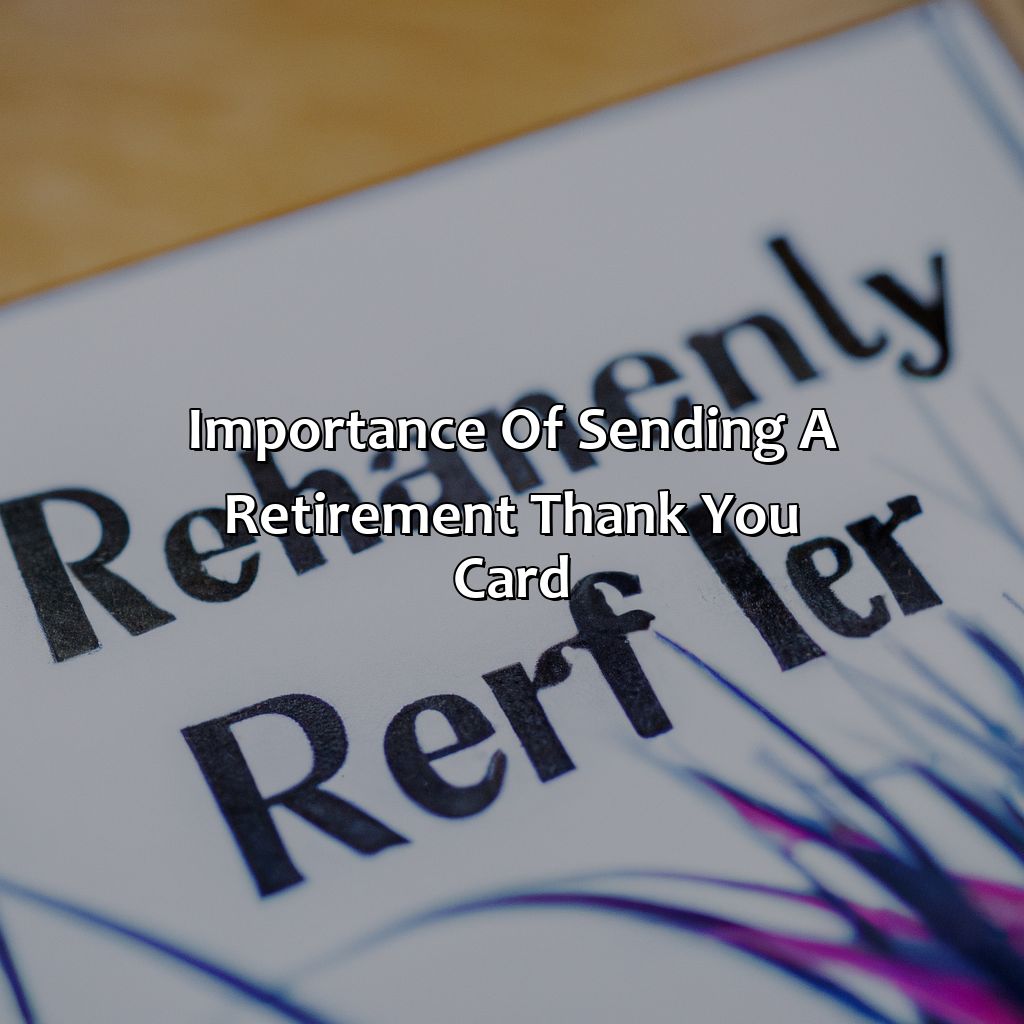
Image credits: retiregenz.com by Harry Duncun
Choosing the right tone and language for the card
Writing the Appropriate Tone and Language: Retirement Thank You Card
Expressing gratitude in retirement thank-you cards is an essential part of thanking colleagues or bosses for their support. Choosing the right tone and language is crucial. Retirement thank-you cards should convey a sense of appreciation that is both heartfelt and professional.
When writing a retirement thank you card, it’s essential to strike the right tone. Consider the type of relationship you have with the recipient. A more formal relationship such as a boss or colleague requires a more formal tone of voice and language. Use courteous language and grateful words to express your appreciation and gratitude properly.
When writing retirement thank you cards, avoid using colloquialisms or slang. Instead, select professional and formal language that is appropriate for the recipient. Use words that show honest appreciation and sentiment.
While it’s essential to express appreciation, it’s also crucial to be concise and avoid using complex language. Be brief, direct, and clear with your wording. Avoid using flowery language or unnecessary adverbs.
Fun fact: According to Hallmark, the most popular occasions for sending a thank you card are weddings, birthdays, and graduations.

Image credits: retiregenz.com by Harry Duncun
Mentioning specific memories or moments in the card
One way to make your retirement thank you card stand out is by mentioning personal memories or moments. Here are 5 points to consider:
- Reflect on a favorite project you worked on together and what made it special.
- Acknowledge a particular skill or talent of the recipient that you admire.
- Highlight a funny or memorable experience you shared with the retiree.
- Share a personal achievement or accomplishment of the recipient that you are proud of.
- Express gratitude for the retiree’s support or guidance over the years.
It is important to make the message unique to the recipient, and conveying your appreciation in a personal way will go a long way.
As you write your message, avoid using cliches or generic phrases. Instead, express your gratitude using genuine and thoughtful words that will make the recipient feel appreciated.
Did you know that studies show expressing gratitude can have numerous health benefits, such as reducing stress and increasing happiness? (Source: Harvard Health Publishing)
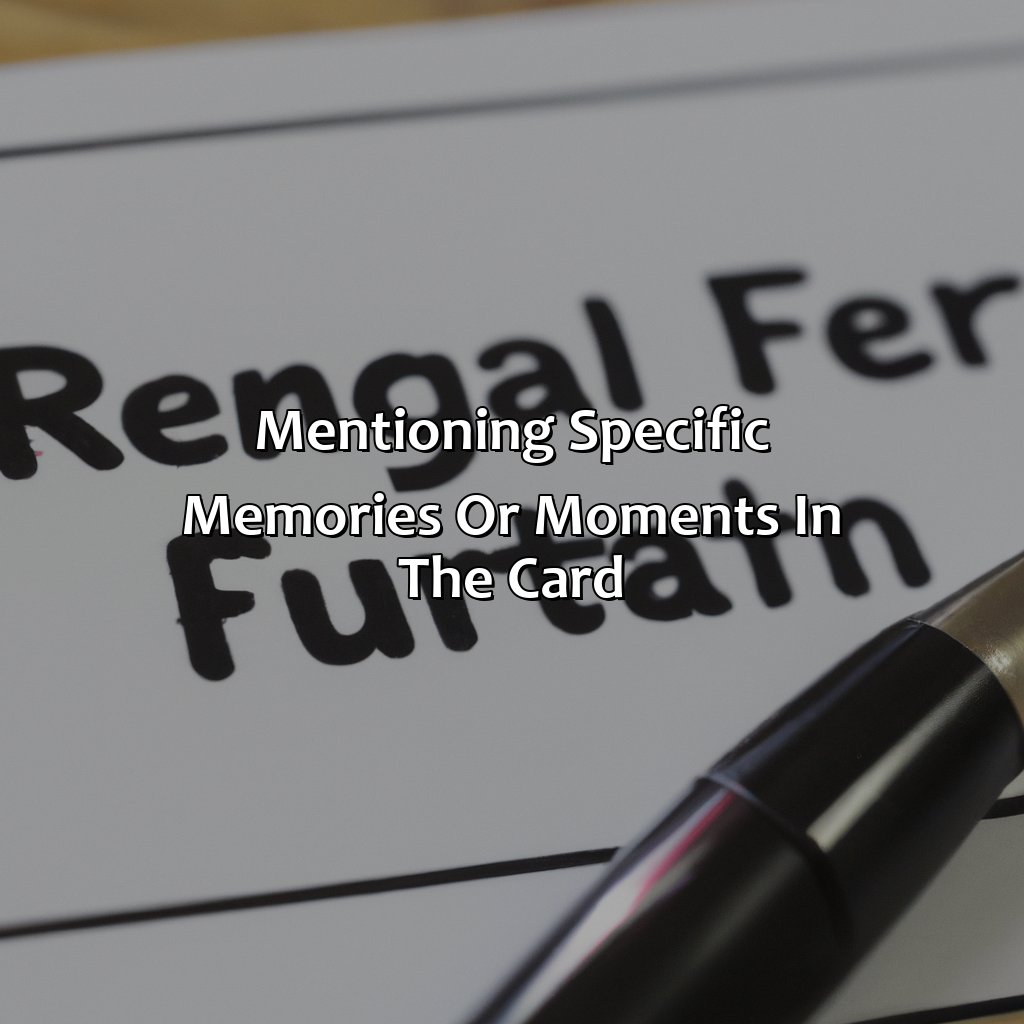
Image credits: retiregenz.com by Yuval Woodhock
Express gratitude and appreciation for their contribution
Expressing appreciation for a retiree’s contribution is a meaningful gesture. Acknowledge their dedication and hard work with a heartfelt thank you card. Use specific examples to highlight their successes and the impact they have had on the organization. Dig deep to find unique details that will make your message stand out. Remember to keep the tone professional and formal, as this is a retirement message. Finally, share a true story about the retiree to show how much they will be missed.

Image credits: retiregenz.com by Yuval Arnold
Wish them well for their future endeavors
Wishing them Success in their Future Endeavors
Retirement marks the end of a long and fulfilling journey, but it also signals the beginning of a new chapter. The best way to express your gratitude is by wishing the retiree success in their future endeavors. Let them know that their hard work and dedication have been a source of inspiration and that they have left a lasting impact.
To wish them well, acknowledge their achievements and highlight their contributions during their time with the organization. Use this opportunity to express your admiration and gratitude for their dedication. Let them know that their legacy will continue and that they will always be remembered for their valuable contributions.
Further, you can share your excitement about their plans for the future and encourage them to pursue their passions and dreams. Express your enthusiasm for what comes next and assure them that they have your full support.

Image credits: retiregenz.com by Harry Woodhock
Sign off using the appropriate closing
When it comes to signing off on a retirement thank you card, it’s important to choose a closing that is personal and fitting for the recipient. Avoid using generic phrases and opt for something that reflects your gratitude and appreciation. Adding a relevant quote, lyric, or phrase can also give a distinct touch to your message. Remember that the closing of your card is what will leave the final impression, so make sure it counts. By taking the time to include a thoughtful closing, you’ll make your retirement thank you card unique and special to the recipient.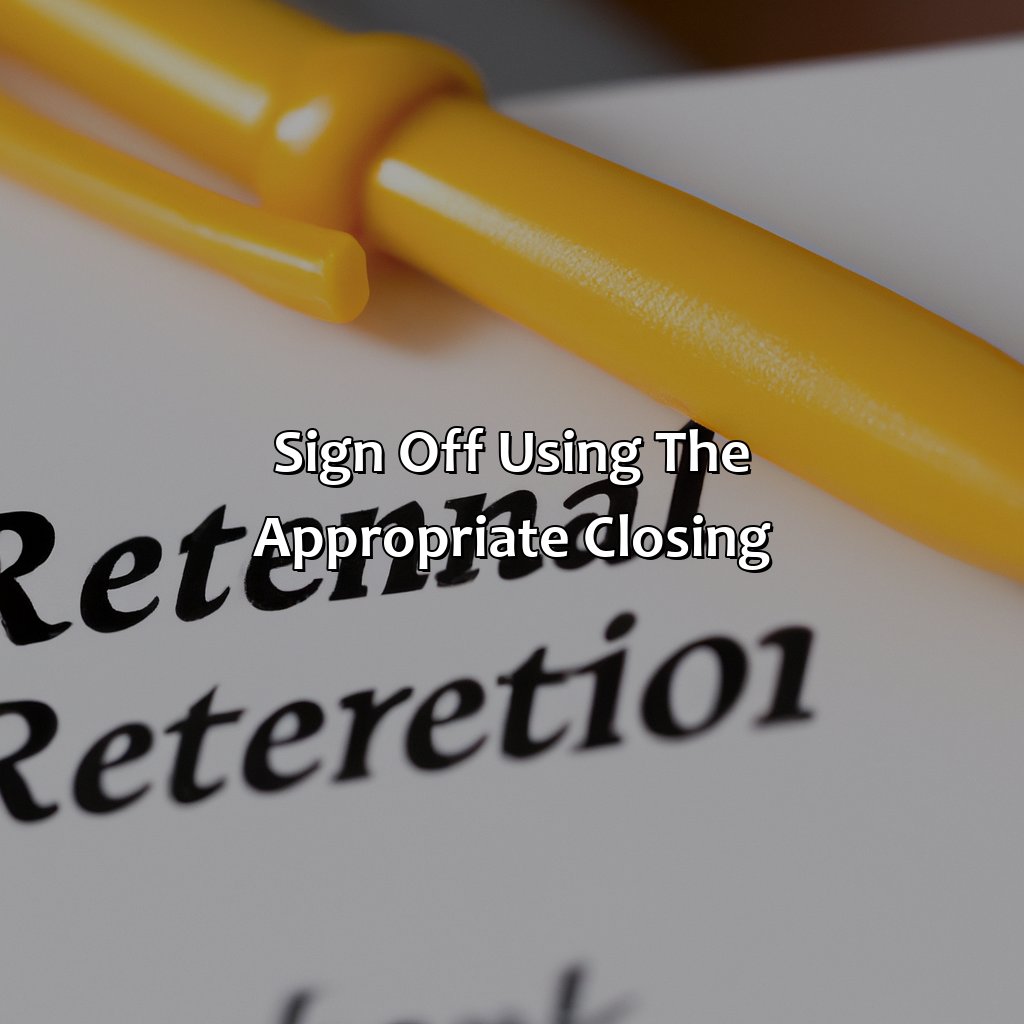
Image credits: retiregenz.com by Adam Duncun
Include a thoughtful and relevant gift with the card
Incorporating a thoughtful and relevant gift can enhance the retirement card’s impact and is a nice gesture. Consider the recipient’s interests, hobbies, and preferences before selecting a gift.
- Encourage self-care by adding a gift certificate for a spa or massage service, or a subscription to a meditation or yoga program.
- Reflect on shared memories and add a tangible item, such as a framed photo or a book on a shared interest or experience.
- Acknowledge the retiree’s future plans or travel goals, by gifting a travel guide, an adventure gear item, or a coffee table book on a dream destination.
Consider wrapping the gift in tissue paper and enclosing it with the card for a personal touch.
Pro Tip: Avoid gifting anything that the retiree may find difficult to store or manage. Keep the gift size manageable, and unique to the retiree’s personality and interests.
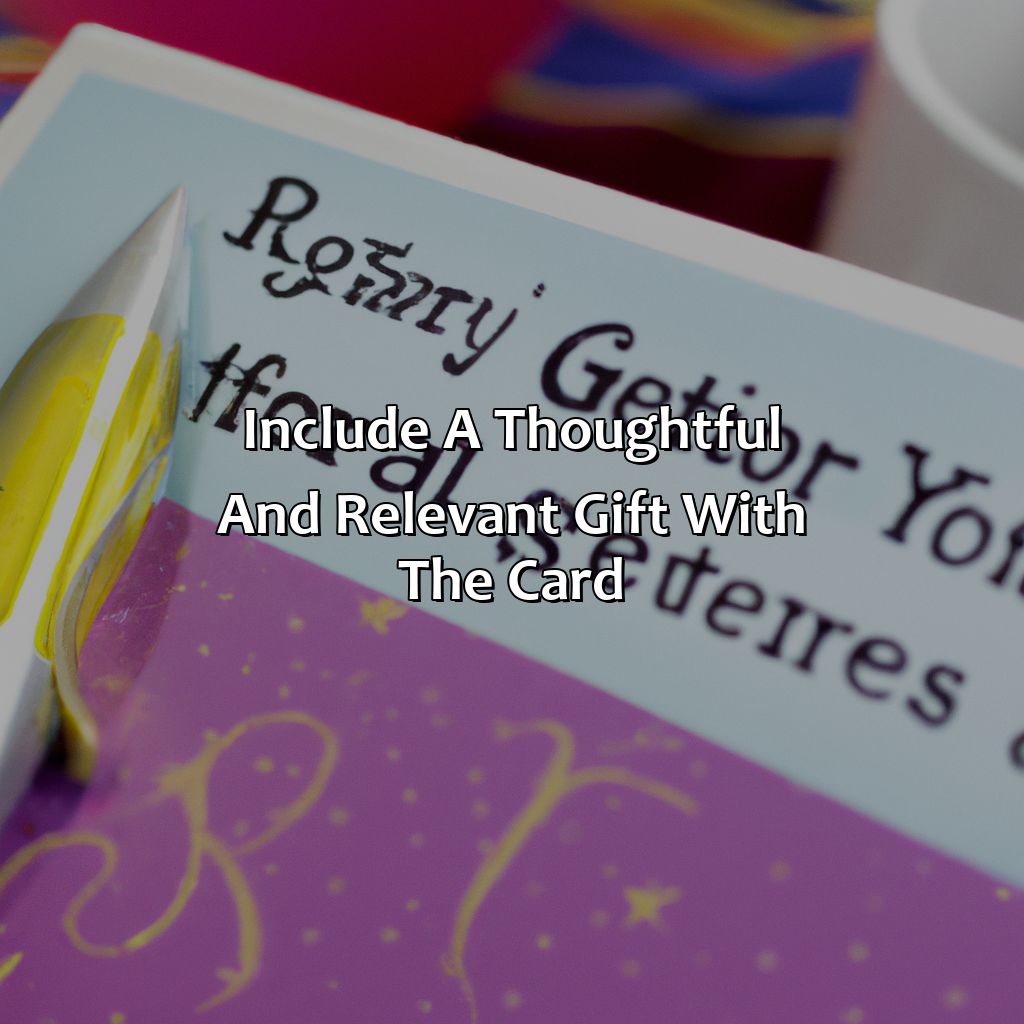
Image credits: retiregenz.com by Joel Duncun
Some Facts About What to Write in a Thank You Card for Retirement:
A retirement thank you card should express gratitude for coworkers and the company. (Source: The Balance Careers)
It is important to personalize the thank you card by mentioning specific people and memories. (Source: American Greetings)
Consider including a message about looking forward to the next chapter of life. (Source: Hallmark)
A retirement thank you card can also include well wishes for the future of the company and colleagues. (Source: Thankster)
Don’t forget to close the card with a heartfelt message and a signature. (Source: Shutterfly)
FAQs about What To Write In A Thank You Card For Retirement?
1. What should I write in a thank you card for retirement?
When writing a thank you card for retirement, make sure to express your gratitude and share some personal anecdotes. You can thank them for their hard work and dedication, wish them well for their future, and let them know how much they will be missed.
2. How can I make my thank you card more personal?
To make your thank you card more personal, consider adding a handwritten note or including a small gift. You can also mention specific memories or moments that you shared with the retiree to show how much you appreciate them.
3. Should I include a retirement gift with my thank you card?
While giving a retirement gift is not necessary, it can be a nice gesture to show your appreciation. Some great retirement gift ideas include a photo album, a personalized plaque, or a gift card to their favorite restaurant.
4. Who should receive a thank you card for retirement?
You should send a thank you card for retirement to anyone who has contributed to the retiree’s career or who has played a significant role in their life. This can include colleagues, employers, mentors, and friends.
5. When should I send the thank you card for retirement?
You should send your thank you card for retirement as soon as possible after the retiree’s last day of work. This will ensure that they receive it while they are still in the retirement mindset and will appreciate the gesture.
6. Can I use a pre-written thank you card for retirement?
While pre-written thank you cards can be convenient, it’s always better to write a personalized message from the heart. This will show the retiree that you put in the effort to express your gratitude and that you truly appreciate them.
 Checkout this IRS Loophole
Checkout this IRS Loophole 
